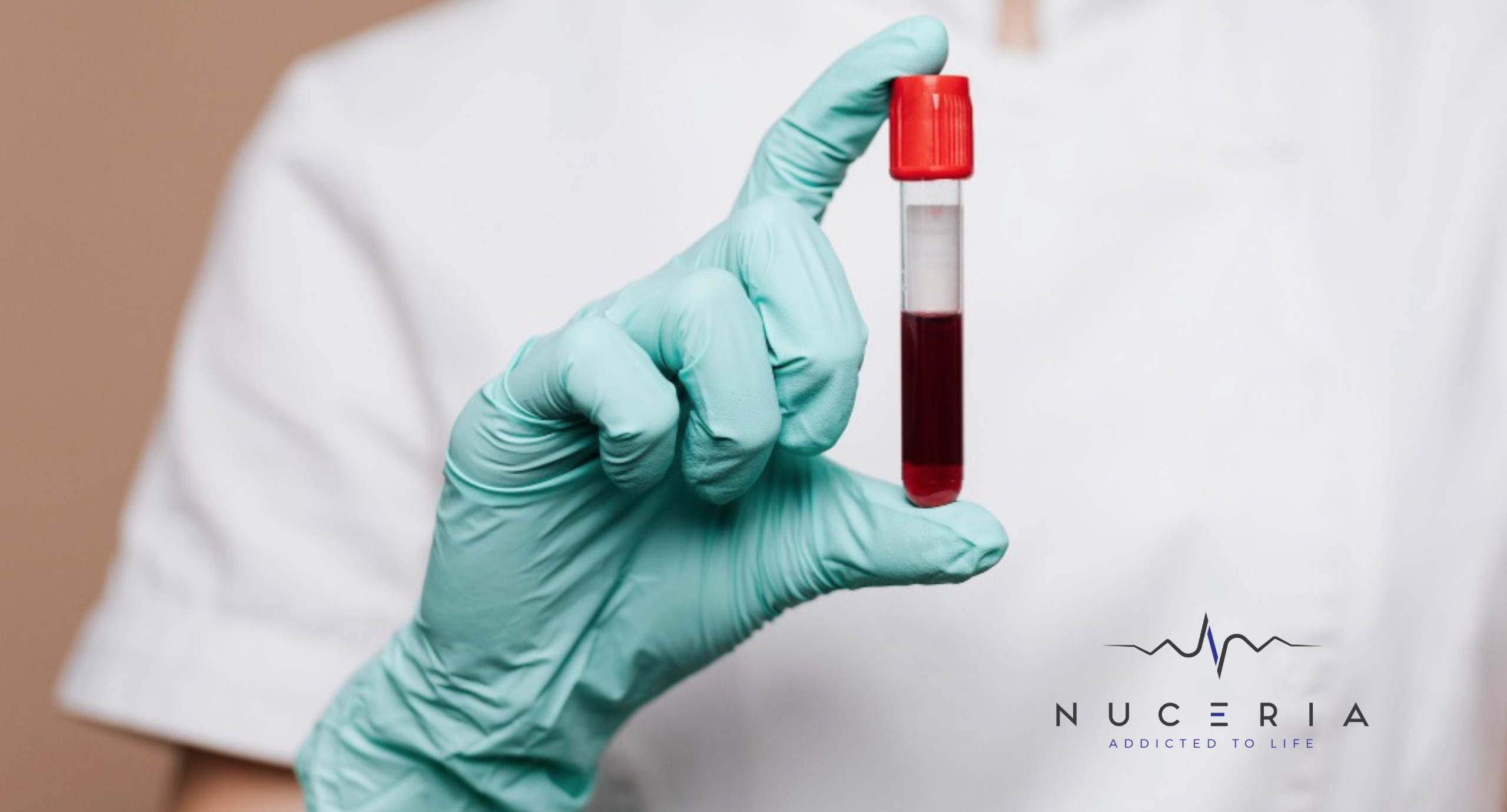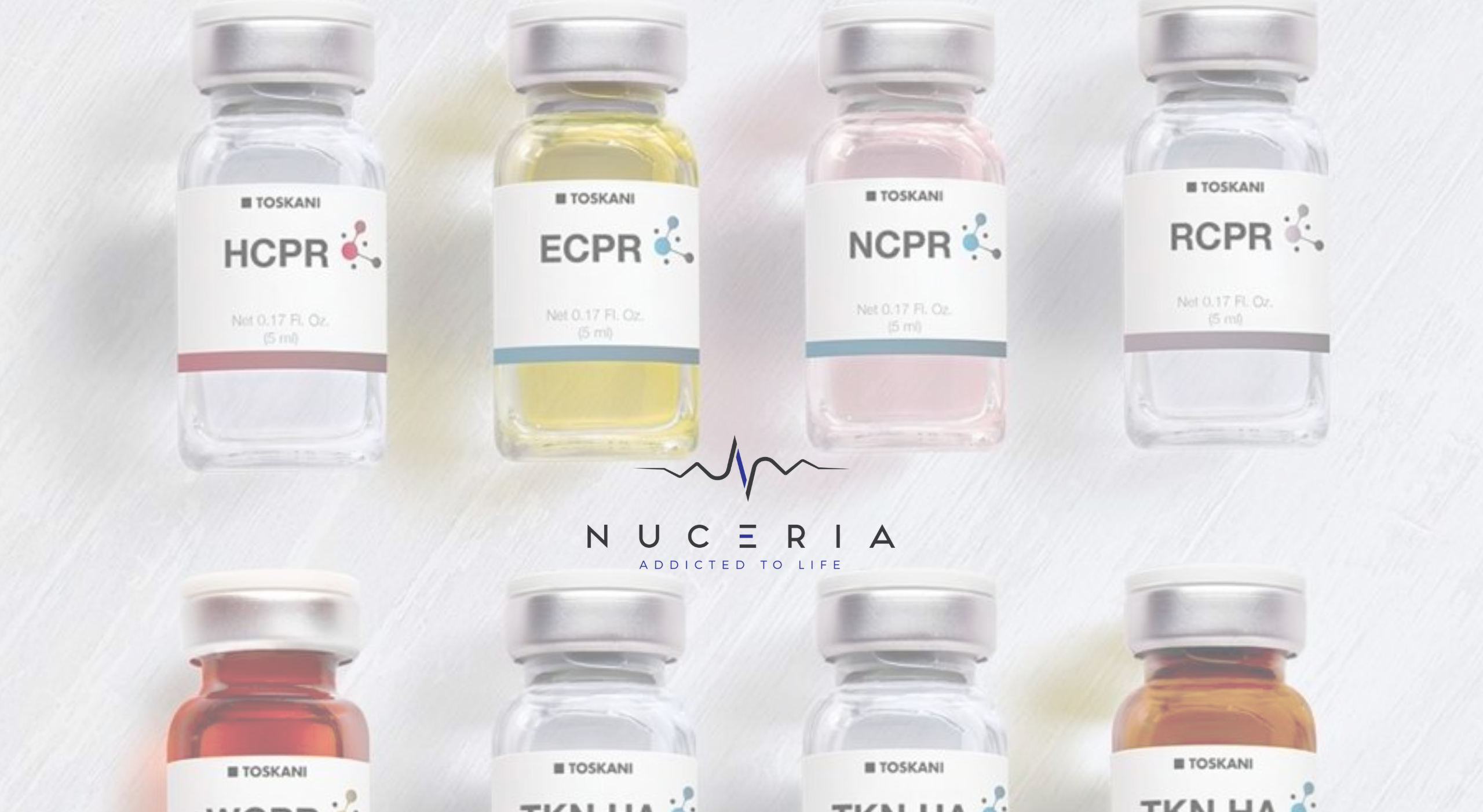Blood Tests: Key to Effective HRT and TRT Treatment
Hormone Replacement Therapy (HRT) and Testosterone Replacement Therapy (TRT) can significantly enhance quality of life by addressing hormonal imbalances. The success of these treatments depends on proper monitoring through regular blood tests, which assess hormone levels, ensure treatment safety, and reduce side effects. Whether starting or continuing HRT or TRT, understanding the role of blood tests is critical to achieving optimal results.
Blood Tests for HRT and TRT in Miami
At Nuceria in Miami, we specialize in comprehensive blood testing for both HRT and TRT. These tests ensure your treatment is tailored to your needs, optimizing effectiveness and safety. From baseline assessments to ongoing monitoring, our services make managing your therapy and health easy.
What Is Hormone Replacement Therapy (HRT)?
Hormone Replacement Therapy (HRT) helps individuals facing hormonal imbalances, particularly during menopause. This treatment supplements hormones like estrogen and progesterone to relieve symptoms such as hot flashes, mood swings, and osteoporosis. Blood tests are essential before starting HRT to determine your hormone levels and customize the treatment plan.
What Is Testosterone Replacement Therapy (TRT)?
Testosterone Replacement Therapy (TRT) treats men with low testosterone, a condition known as hypogonadism. TRT boosts energy, muscle mass, and mood. Doctors must conduct blood tests before and after TRT to safely manage testosterone levels and minimize the risk of side effects.
Why Blood Tests Are Essential in HRT and TRT
Blood tests personalize your HRT or TRT by identifying your specific hormonal needs. Everyone’s hormone profile is unique; baseline blood tests allow healthcare providers to prescribe the correct doses. Regular tests after starting treatment ensure hormone levels stay balanced, maintaining effectiveness and minimizing risks.
Essential Hormones Monitored in HRT and TRT
Testosterone Levels
In testosterone replacement therapy (TRT), monitoring testosterone levels is crucial to ensure optimal hormone levels. Before starting TRT, establish a baseline with a blood test and conduct follow-up tests to prevent issues such as low energy or excess testosterone.
Estrogen Levels
Doctors carefully monitor estrogen for women undergoing HRT to ensure they experience relief from menopause symptoms without risking side effects. They conduct regular blood tests to keep estrogen levels within a healthy range.
Progesterone and Other Hormones
Progesterone helps balance estrogen in women, while hormones like DHEA and cortisol are checked in HRT and TRT to offer a comprehensive picture of hormonal health.
Standard Blood Tests for HRT and TRT
Complete Blood Count (CBC)
A CBC test measures red and white blood cells and platelets, providing insights into overall health. It’s vital for both HRT and TRT monitoring to catch potential side effects like elevated red blood cell counts.
Lipid Panel
A lipid panel tracks cholesterol levels, crucial for HRT and TRT, as testosterone can influence cholesterol and heart health. This test helps manage cardiovascular risks.
Liver Function Tests
Liver function tests are essential for monitoring how your body processes hormones during HRT and TRT. Estrogen, in particular, can impact liver enzymes, so regular testing helps ensure the liver remains healthy.
How Often Should You Get Blood Tests?
Healthcare providers typically conduct blood tests before starting HRT or TRT to establish a baseline, then continue to do so every 3 to 6 months during treatment. This practice enables them to adjust doses as needed. For those undergoing blood tests for TRT and HRT in Miami, Nuceria offers convenient local options for frequent monitoring.
How to Prepare for a Blood Test for HRT and TRT
You may need to fast for some blood tests, especially lipid panels. Since hormone levels fluctuate throughout the day, scheduling blood tests, particularly for testosterone, in the morning ensures accurate results.
Adjusting HRT and TRT Based on Blood Test Results
The results of your blood tests are crucial for customizing your therapy. The specialist will change your dosage based on whether the test results show low or high levels. Without regular testing, there is a risk of under- or over-dosing, which can reduce the effectiveness of the treatment or lead to side effects.
Risks of Skipping Regular Blood Tests
Neglecting blood tests can lead to complications. Inadequate monitoring may result in hormone levels that are too high or too low, increasing the risk of heart disease, liver issues, or cancers. Regular blood tests keep your treatment on track and prevent serious health concerns.
Conclusion: The Importance of Blood Tests for Safe HRT and TRT
Blood tests are essential for safe and effective hormone therapy. Whether you’re starting HRT, TRT, or continuing treatment, regular monitoring helps fine-tune dosages and ensures the best outcomes. At Nuceria in Miami, our blood test services make it simple to monitor your therapy and stay healthy.
FAQs: Blood Tests for HRT and TRT in Miami
1. Why is a baseline blood test necessary before starting HRT or TRT?
A baseline blood test gives your healthcare provider a clear picture of your hormone levels and overall health.
2. Do I need to fast before my blood test?
For some tests, like lipid panels, you may need to fast. Typically, fasting involves not eating or drinking anything (except water) for 8-12 hours before the test. Your healthcare provider will tell you if fasting is required based on the specific tests.
4. What hormones are typically monitored in blood tests for HRT and TRT?
In HRT, monitoring focuses primarily on the critical hormones estrogen and progesterone. TRT mainly targets testosterone. Healthcare professionals may also check hormones like DHEA and cortisol to provide a more comprehensive view of your hormonal health.
5. What is included in a typical blood test panel for HRT or TRT?
A typical panel includes tests like a Complete Blood Count (CBC), a lipid panel to check cholesterol levels and liver function tests. These tests help monitor overall health and how the body responds to hormone therapy.
6. Who is a candidate for Hormone Replacement Therapy (HRT)?
You might be a candidate for HRT if you’re experiencing symptoms of hormonal imbalance, such as hot flashes, mood swings, or night sweats, often associated with menopause. Women going through early menopause or experiencing significant discomfort during menopause may also benefit from HRT.
7. Who is a candidate for Testosterone Replacement Therapy (TRT)?
Men with clinically low testosterone (hypogonadism) are good candidates for TRT. If you have symptoms like fatigue, low libido, depression, or muscle loss, a blood test can confirm low testosterone levels before starting therapy.
8. Can Women Also Receive Testosterone Therapy?
Yes, women can benefit from low-dose testosterone therapy. This therapy can significantly improve energy levels, mood, and libido. As women age, especially during menopause, testosterone levels decline, which may lead to symptoms like fatigue and reduced sexual desire.
9. When Is Testosterone Therapy Appropriate for Women?
Healthcare providers may consider testosterone therapy for women who:
- Experience low libido or sexual dysfunction that doesn't respond to other treatments.
- Suffer from fatigue or low energy levels that impact their quality of life.
- Have undergone surgical menopause or hormonal imbalances.
Request an appointment here: https://mynuceria.com or call Nuceria Health at (305) 398-4370 for an appointment in our Miami office.
Check out what others are saying about our services on Yelp: Wellness Center in Miami, FL.







